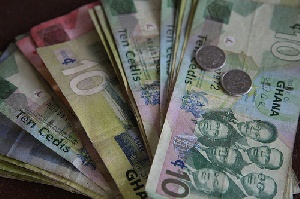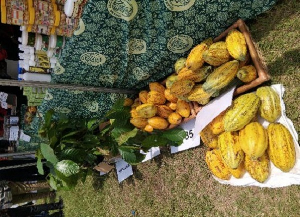US investors searching desperately for higher yields are piling into Africa's emerging bond markets, but may not be getting paid enough for the chaos and uncertainty still stalking Sub-Saharan countries, some portfolio managers have said.
Emerging market debt funds have outperformed nearly every other bond fund category over the past several years, attracting investors seeking higher yields. That has allowed issuers to flood the market with new dollar-denominated bonds at ever-lower yields that may not compensate investors for the risk of future defaults.
The rush of investors is like "a bunch of adults sitting in a kiddie pool", said L. Bryan Carter, who runs the Acadian Emerging Markets Debt Fund.
"There's only so much room," he said.
Rwanda, still trying to recover from its 1994 genocide, issued US$400 million in 10-year, dollar-denominated bonds earlier this month, but investors were clamouring to buy almost nine times as much debt.
Other Sub-Saharan countries, led by Ghana and Nigeria, are expected to issue up to US$7 billion in debt this year, or more than the previous five years combined, according to analysts.
Carter sees signs of an overheated market as bonds issued by the Central African nation of Gabon, which credit-rating agencies knock for poor fiscal management and slowing oil production, continue to entice US investors.
Yields on Gabon's dollar-denominated bonds maturing in 2017 have been cut in half over the past 18 months to 3.3 percent, a spread of only 248 basis points over the US five-year Treasury bond.
"Those yields don't represent Gabon's risks," Carter said.
"The spreads have been driven down to ridiculous levels."
Oil production, Gabon's main economic engine, has declined by a third since 1997. The government is also under fire from opposition activists who claim the 2009 elections were stolen by President Ali Bongo, son of the late leader Omar Bongo.
Perhaps more worrying to investors, Gabon has been late at least twice since 2008 with coupon payments on the US$1 billion bond issued in 2007.
In Nigeria, bond yields plummeted last fall when JP Morgan added the country to its Government Bond Index-Emerging Market index - boosting its legitimacy among many investors.
"I was much more comfortable investing in Nigeria before its inclusion in the index," said Michael Cirami, an emerging markets fund manager at Eaton Vance Corp. "You wonder if the money flows have outstripped the ability of people to become knowledgeable about the country."
But make no mistake: African bonds have so far been good to US money managers like Carter. His fund's one-year return of 17.76 percent through May 14 was top among emerging market managers investing in debt issued in local currencies, according to data from Lipper Inc, a Thomson Reuters company.
Even investors in Gabon have done well if they arrived early to that country's bond market.
One of Gabon's largest bond investors has been the US$32 billion Lord Abbett Short Duration Income Fund. It held US$21 million in Gabon bonds at the end of February, reflecting a capital appreciation of 22 percent, according to US regulatory filings.
Overall, emerging market debt funds, which have about US$95 billion in assets, posted a 1-year return of 11.69 percent through the end April, according to Lipper's data on dollar-denominated bond funds. That easily beats the 6.68 percent average return among world income funds.
"There's a big desire by retail and institutional investors to earn income, and Africa has become more investable," said Larry Seruma, who grew up in Uganda and is now chief investment officer at Nile Capital Management LLC.
Nigerian debt is a core holding for Seruma and many other US money managers investing in Africa. Kjetil Birkeland, a senior emerging market analyst at Standish Mellon Asset Management, said he still likes Nigeria's growth prospects.
In addition, the Nigerian local bond market is more liquid than the other African local markets except South Africa, making it easier for fund managers to exit the market later.
But risk remains high on a continent where armed Islamist rebels have expanded their range of attacks; rebels and mutinous soldiers continue to launch sporadic coups; and government officials remain embroiled in graft and mismanagement scandals.
Even in calmer African nations, the balance sheet can be a worry. Oil and gold producer Ghana, which burnished its democratic credentials with a peaceful election last year, has troubled investors with runaway public spending.
But that won't be enough to scare funds away from the country's expected Eurobond issue this year - worth up to US $1billion - for refinance and building projects.
"That bond issue will be oversubscribed," Seruma said.
Business News of Friday, 24 May 2013
Source: B&FT













